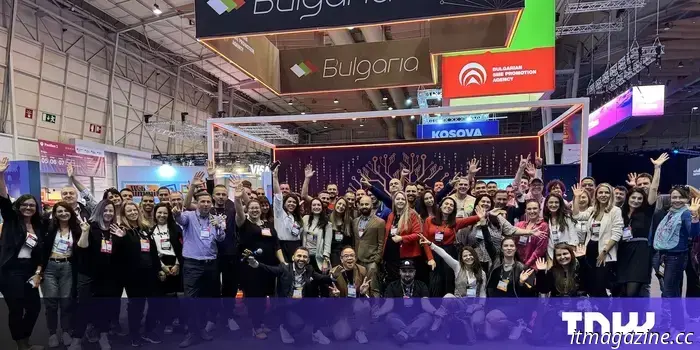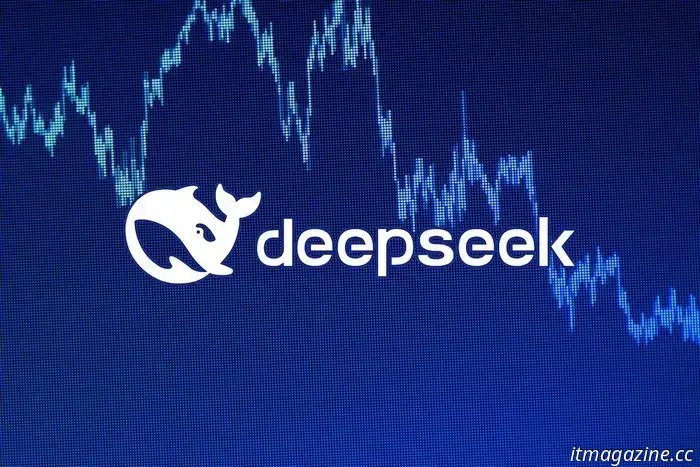
Bulgaria's courageous transition: Evolving from an outsourcing center to an up-and-coming player in deeptech.
In the worldwide competition to establish the next major tech hub, numerous countries invest billions in developing local talent, attracting venture capitalists, and creating policies favorable to startups. While some nations experience difficulty gaining traction, others are advancing rapidly.
What differentiates these fast-growing countries? What is the key to transforming their ecosystems?
Look to Bulgaria—a nation that is steadily and confidently building one of Europe's most intriguing tech narratives.
The essential elements
For years, Bulgaria has attracted global tech companies due to its flat 10% tax rate, a highly skilled labor force, and cost-effectiveness. Major players like SAP, Microsoft, Oracle, and VMware have long maintained significant IT centers in the country, leveraging Bulgaria's extensive technical talent pool.
Notably, Bulgaria leads Europe in a crucial metric: the proportion of women in tech. Nearly 29% of ICT positions in Bulgaria are occupied by women, nearly double the EU average, which broadens the talent base and sets a commendable standard for inclusivity in the industry.
In 2019/2020, fDi Intelligence designated Sofia as the most cost-effective city globally for fintech, placing Bulgaria squarely on the radar of international investors.
In recent years, new initiatives have targeted the enhancement of the country's own tech companies.
From Telerik to Bulgaria's first homegrown unicorn
One of Bulgaria's initial significant success stories was Telerik, a software firm that created tools for developers. Although it was sold to Progress for $262.5 million in 2014 before achieving unicorn status, this achievement served as a launchpad for numerous new companies. In 2022, Payhawk, a spend management platform, became the nation’s first homegrown unicorn.
According to StartupBlink’s 2024 Global Startup Ecosystem Index, Bulgaria now ranks 37th globally for startup creation, marking a notable advancement. Bulgarian startups garnered over €264 million in investments in 2023, a fourfold increase from five years ago—indicating a strong rise in both international and regional confidence in the ecosystem.
Investments in emerging technologies have been particularly substantial. The Recursive’s State of AI Innovation in CEE report revealed that over €1 billion was invested in Bulgarian and Bulgarian-founded deep tech and AI startups from 2018 to 2023.
“Founders here have become more mature in their business thinking,” notes Peter Tsatchev, Principal at VC firm LAUNCHub Ventures. “We are witnessing a generation of entrepreneurs who approach building with a global mindset from the outset. They’re developing products that can rival startups from London or New York. There’s a trend of many young people from the region studying abroad and returning with the intention of building global companies.”
Tsatchev states that access to capital is no longer the key challenge. Bulgaria has 15 VC firms managing approximately €500 million in assets; the next step is to involve more individuals in the founder pipeline.
“What we need are more success stories. When individuals witness someone from their own network establishing a global company, it becomes tangible. That ripple effect—along with education in entrepreneurship and increased awareness—is how we will see the next wave of startups emerge.”
The essential element: The #BreakingGrounds initiative
However, local success stories alone were insufficient to position Bulgaria on the global tech map. What the country truly required was a bold rebranding—transforming its image from merely an outsourcing hub to a serious player in deep tech innovation.
“The primary challenge was a lack of visibility and recognition,” explains Boyko Takov, Executive Director of the Bulgarian Small and Medium Enterprise Promotion Agency (BSMEPA). “Even with robust tech talent and success stories, many still viewed the country as an outsourcing destination rather than a place for high-growth startups.”
Takov believes that government involvement is crucial for establishing a globally competitive tech ecosystem. “Without institutional support, scaling an ecosystem on an international level is nearly impossible. Public-private partnerships allow for consistent investment in visibility, structured support for startups, and a presence on the global stage. Governments must act as facilitators, not just providers of funds.”
BSMEPA has played a strategic role in coordinating ecosystem-wide efforts—organizing stakeholders, ensuring international visibility, and uniting public and private entities under a shared vision.
In 2023, BSMEPA collaborated with the regional tech PR agency Storytelling Studio, supported by The Recursive, to launch #BreakingGrounds—an ambitious initiative aimed at redefining Bulgaria’s international image and positioning it as a European leader in deep tech by 2027.
The goal? To enhance Bulgaria’s global presence by highlighting its top tech talent and startups on Europe’s leading tech platforms.
“2024 was a pivotal year for #BreakingGrounds,” states Teodor Antonio Georgiev, Co-Founder & Head at Storytelling Studio. “Through our delegations at events like Web Summit, Slush, VivaTech, and Bits & Pretzels, we connected with over 350,000 global investors and innovators. More than 100



Other articles
 What will surprise the market with the new Chinese DeepSeek R2
Chinese startup DeepSeek is preparing to surprise the artificial intelligence market again. This time we are talking about the R2 model, information about which has already caused a wave of discussions due to impressive technological achievements in three areas at once.
What will surprise the market with the new Chinese DeepSeek R2
Chinese startup DeepSeek is preparing to surprise the artificial intelligence market again. This time we are talking about the R2 model, information about which has already caused a wave of discussions due to impressive technological achievements in three areas at once.
 New versions of open Torrent clients
This week, two open-source projects launched updated versions of popular torrent clients at once. Perhaps due to the difficulties of obtaining licensed software from companies that have left Russia, it will be extremely useful for many Russians to use new versions of free and open source software that has been proven over a decade.
New versions of open Torrent clients
This week, two open-source projects launched updated versions of popular torrent clients at once. Perhaps due to the difficulties of obtaining licensed software from companies that have left Russia, it will be extremely useful for many Russians to use new versions of free and open source software that has been proven over a decade.
 This massive 98-inch Samsung TV is currently available at over 50% discount.
The Samsung 98-inch DU9000 4K LED is currently available for $1,850 at Woot, a significant reduction from its regular retail price of $4,000.
This massive 98-inch Samsung TV is currently available at over 50% discount.
The Samsung 98-inch DU9000 4K LED is currently available for $1,850 at Woot, a significant reduction from its regular retail price of $4,000.
 Lenovo’s budget-friendly mobile notetaking tablet has now fallen below the $200 mark.
The Lenovo Tab K11 LTE is available for purchase today, priced under $200. If you require connectivity in various locations, this tablet is ideal for you. It can link with your Lenovo laptop and convert images into PDFs.
Lenovo’s budget-friendly mobile notetaking tablet has now fallen below the $200 mark.
The Lenovo Tab K11 LTE is available for purchase today, priced under $200. If you require connectivity in various locations, this tablet is ideal for you. It can link with your Lenovo laptop and convert images into PDFs.
 The latest version of the 75-inch Samsung Frame TV is available for purchase.
The Samsung 75-inch Frame 4K QLED is currently available for $3,200. You can buy it at Amazon, B&H Photo-Video, and Samsung to benefit from this deal.
The latest version of the 75-inch Samsung Frame TV is available for purchase.
The Samsung 75-inch Frame 4K QLED is currently available for $3,200. You can buy it at Amazon, B&H Photo-Video, and Samsung to benefit from this deal.
 ARX Robotics capitalizes on defense technology trends, securing €31M for military robots.
German defense technology startup ARX Robotics has obtained €31 million to increase the production of its autonomous robots designed for the battlefield.
ARX Robotics capitalizes on defense technology trends, securing €31M for military robots.
German defense technology startup ARX Robotics has obtained €31 million to increase the production of its autonomous robots designed for the battlefield.
Bulgaria's courageous transition: Evolving from an outsourcing center to an up-and-coming player in deeptech.
Initially viewed just as an outsourcing destination, Bulgaria is now aiming to establish itself as a deeptech hub in Europe. Here’s how it is doing so.
